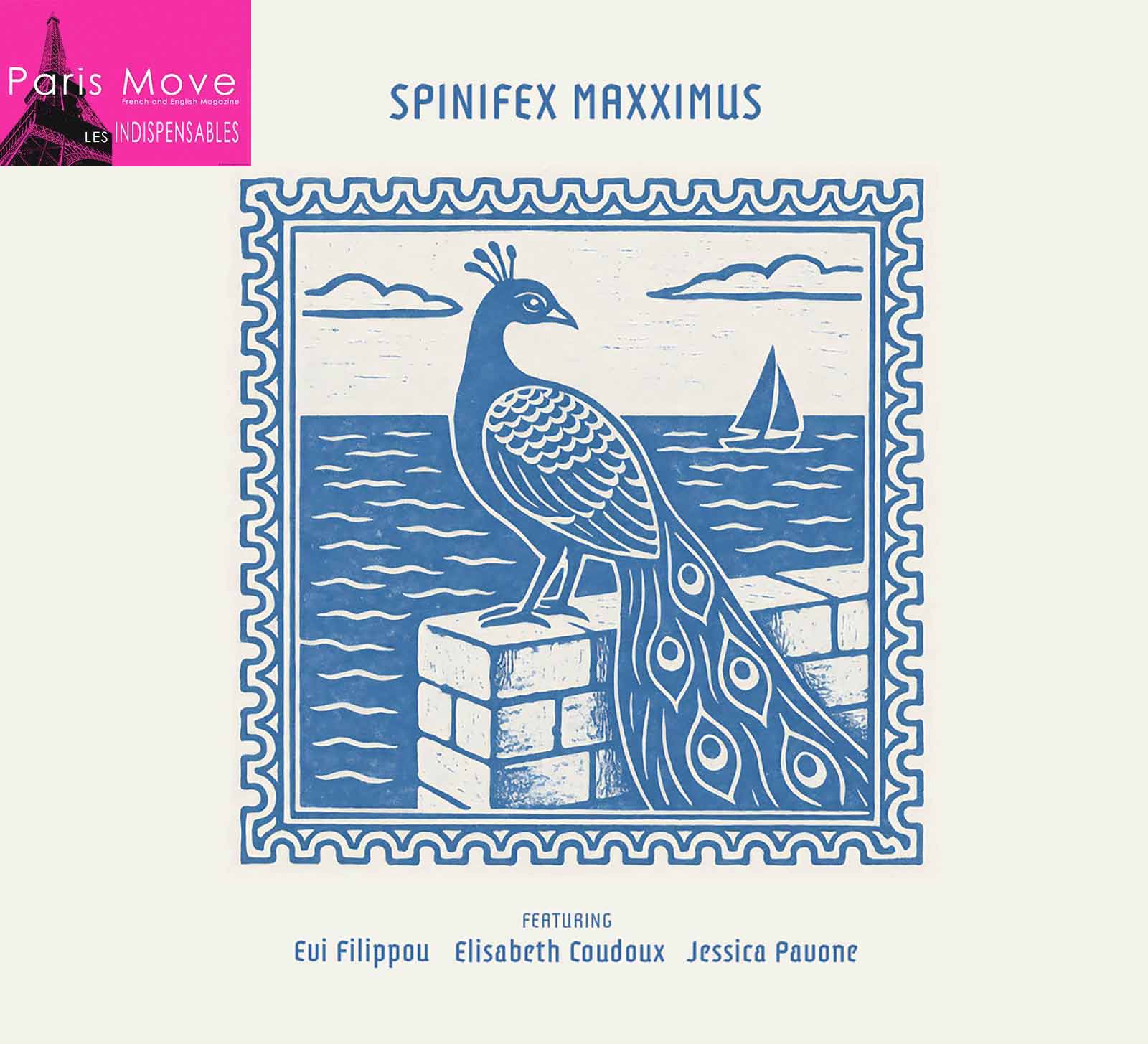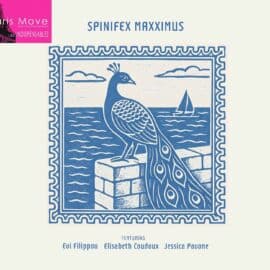| Jazz, Musique improvisée |

Spinifex and the Sonic Architecture of the Future
Attending a concert by these Dutch musicians is to invite a deliberate kind of disquiet. Between jazz, improvisation, and classical traditions, every musical reference you’ve ever cultivated will be summoned to attention. The sounds erupt from all directions, sometimes chaotic, sometimes crystalline, but always designed to provoke, to unsettle, to challenge the listener’s sense of what music can or should be. If you survive the first track of their new album, you might, like me, be wired for the most intricate and demanding forms of music, the kind that sneaks into your consciousness, seizes your intellect, and works it relentlessly.
There is an undeniable reward in surrendering to such rigor. The experience is akin to reading a novel of rare density or attending a play that reshapes your moral coordinates. Spinifex’s music operates on that level: every note, every break, every shift in time signature feels like part of a grander design. Their mission is not comfort but confrontation, an audacious act of renewal in a musical world too often satisfied with fusion and familiarity.
These are musicians without prejudice or inhibition, unafraid to dismantle codes and reassemble them into something both ancient and shockingly new. One suspects that this is what the first sketches of 22nd-century art music might sound like.
As critic Eric McDowell of The Free Jazz Collective writes, “What’s both thrilling and impressive about Spinifex’s music is the way the group manages to absorb and synthesize a variety of influences [and] produce something greater than a mere assortment of styles… They’re also capable of showcasing their technical mastery through incredibly precise, complex structures, while still allowing space for freer play and discovery.”
Another reviewer describes their work as “a total immersion into the visceral and cerebral—a fiery blend of free improvisation, avant-jazz complexity, punk-rock aggression, and irresistibly infectious grooves.” Tobias Klein, the group’s artistic director and alto saxophonist, articulates their intent more plainly: “We want to engage people intellectually with our music, but also to shake them up in a way that works in a sweaty nightclub atmosphere.”
For the audience, this duality is what makes Spinifex unforgettable. Their music exists simultaneously in the mind and the body. It can be savored in concert halls or devoured through headphones with equal pleasure, an uncommon feat for music of such complexity. Each composition functions as a self-contained work of art, an informal acoustic research lab where experimentation feels both disciplined and spontaneous. Listening to Spinifex is like discovering a master painting in a gallery: you get lost in the textures and brushstrokes, you linger in the details, you surrender to vibration. And where there is vibration, there is meaning.
That vibration can feel overwhelming. Spinifex’s performances draw you in the way a Louis-Henri de Rudder battle drawing does, so dense with motion, so teeming with fine detail, that your eyes (or ears) have nowhere to rest. It’s this profusion that creates depth. Their sound is a living palimpsest of centuries-old motifs and modern sonic architecture, and within it, the ghosts of the 19th century seem to murmur. These musicians embrace their lineage and, in doing so, construct a bridge between past and present, a rare feat in today’s fractured musical landscape.
Their origins matter. Spinifex’s members come from across the Benelux, that northern European triangle of linguistic and cultural overlap where Flemish, Dutch, and subtle dialectal variants shape thought as much as speech. Each artist carries traces of those intertwined histories. The result is music that feels simultaneously local and global, analytical and instinctive, cerebral and primal.
The sextet itself is a study in contrasts and cohesion. Named after a hardy species of Australian grass, the Amsterdam-based Spinifex may at first appear to be a typical Western experiment in free improvisation and punk-inflected jazz. Yet beneath that surface lies an intricate network of cyclic rhythms drawn from Turkish and Indian musical traditions, a rhythmic DNA that animates even their most chaotic passages.
Drummer and astrophysicist Philipp Moser brings the precision of a scientist and the ferocity of a metalhead, known for his work with the Dutch progressive group Cilice. Guitarist Jasper Stadhouders, a key member of Ken Vandermark’s Made to Break, leads his own ensemble, Polyband, where structured chaos is the point. Gonçalo Almeida, the Portuguese-born bassist based in Rotterdam, alternates between a deep, rounded sound and searing electric distortion. Tenor saxophonist John Dikeman, whose collaborations with William Parker, Hamid Drake, and Joe McPhee have earned him a cult following, injects raw fire into the ensemble’s cerebral storm. Bart Maris, the Flemish trumpeter, has become one of the defining voices of European avant-garde jazz, while Tobias Klein, on alto sax and bass clarinet, provides both the compositional backbone and the philosophical compass that hold Spinifex together.
Together, they form a sound that is less a fusion than an ecosystem: turbulent, organic, and strangely inevitable. Each member contributes a distinct current to the whole, and yet the resulting flow feels guided by an invisible hand, perhaps the collective consciousness of six artists who have long abandoned the illusion of boundaries.
If you are adventurous, if you crave art that demands your full attention, Spinifex’s new album will likely be one of the most rewarding sonic voyages you’ll take in 2025. This is not background music. It’s not even entertainment in the usual sense. It’s a challenge, a dialogue, and, ultimately, a revelation. The question is not whether Spinifex will redefine the European avant-garde, but whether we’ll be ready when they do.
Thierry De Clemensat
Member at Jazz Journalists Association
USA correspondent for Paris-Move and ABS magazine
Editor in chief – Bayou Blue Radio, Bayou Blue News
PARIS-MOVE, October 24th 2025
Follow PARIS-MOVE on X
::::::::::::::::::::::::
Musicians :
Jessica Pavone – viola,
Elisabeth Coudoux – cello and
Evi Filippou, vibraphone/percussion
Tobias Klein – bass clarinet/alto sax,
Bart Maris – trumpet,
John Dikeman – tenor sax,
Jasper Stadhouders – guitar,
Gonçalo Almeida – double bass,
Philipp Moser – drums
Track Listing :
Smitten
Sack & Ask
Phoenix
Springend
Annie Golden
The Privilege of Playing the Wrong Notes

